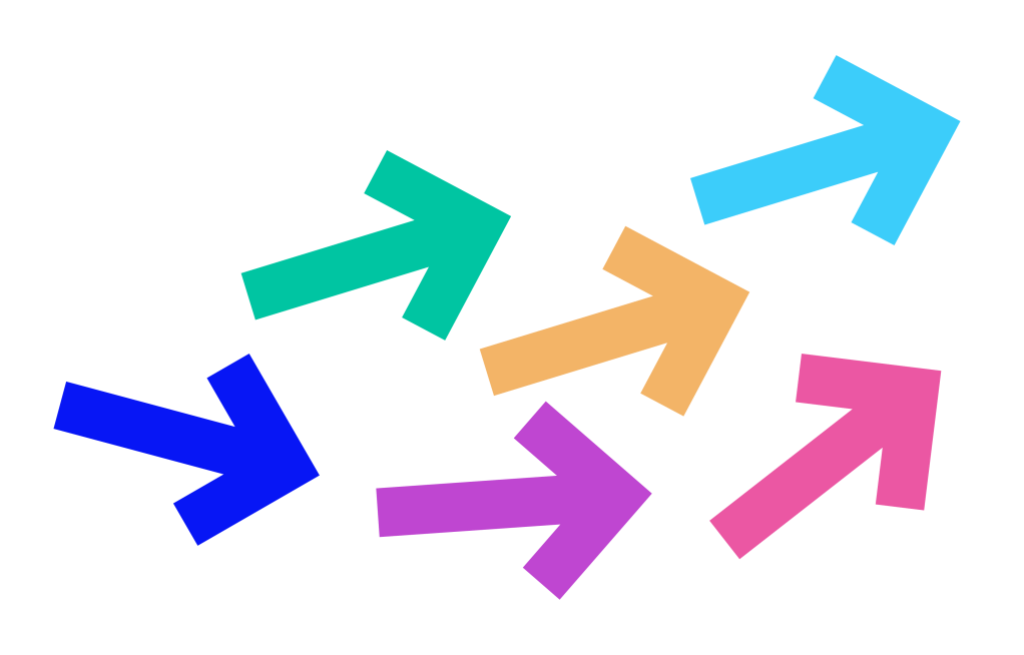We are excited to announce that Wikimedia Deutschland (WMDE) now has a new strategic direction until 2030! This article provides some insights from the process that led up to WMDE’s strategic direction as well as an overview of its content.

The process
In 2022, WMDE embarked on a strategy review to review its strategic framework that was developed in 2018. Much had happened since then! First and foremost, the Movement Strategy was created but it had remained unclear how the Movement Strategy and WMDE’s strategic framework might relate to and enrich each other. WMDE developed new values for the organization in 2022, which were fundamentally grounded in the Movement Strategy. The Linked Open Data Strategy was created in 2021. All this taken together, the time was rife to review the organization’s strategy.
Now, developing a strategy process for WMDE that lives up to its values of participation and diversity was a big challenge: The organization currently has around 160 employees, around 2.500 active members that have a say in strategy development, and many active volunteers in different communities, which should have the opportunity to get involved. And for WMDE, any changes to its strategic framework need to be decided on by the Supervisory Board and then approved by the General Assembly (meeting once a year). In the summer of 2022, we then had around 10 months to review our old strategic framework and come up with something that reflects our new values as well as integrates the Movement Strategy well. So we said: Let’s go!
Given the fixed timeframe of 10 months, the decision was made early on that we would not be able to develop a full blown strategy including a detailed plan of action and funding strategy. Instead, we took inspiration from the Movement Strategy and decided to first develop a strategic direction for the organization, similar to the Movement Strategic Direction. We also decided to adopt the timeframe from the Movement Strategy and create Wikimedia Deutschland’s new strategic direction until 2030.
We started off with an input phase in the fall of 2023 where we organized 8 different virtual charging session to get external input for a frist draft. In these charging sessions, we talked to Wikimedians like Maryana Iskander (WMF) and João Alexandre Peschanski (Wiki Movimento Brasil) as well as public figures like Nina Jankowicz or scholar Ellen Euler. Each provided us with their view on WMDE’s main opportunities and challenges for the future. Additionally, important sources of input were the Linked Open Data strategy developed in 2021, WMDE’s values and, of course, the Movement Strategy. A working group comprised of staff from all parts of the organization, including our Executive Directors, was then tasked with coming up with a first draft strategic direction in January 2023. This first draft was reviewed in several feedback rounds with WMDE’s Supervisory Board, active members, the remaining staff and the German-speaking Wikipedia Community. These feedback rounds were immensely valuable to this process as they gave the working group very good guidance on which parts needed to be revised and what additional aspects needed to be considered. The working group took this feedback very seriously and engaged in many in-depth discussions. In June 2023, the WMDE General Assembly approved Wikimedia Deutschland’s new strategic direction until 2030!
The content
This new strategic direction clarifies in the introduction that it “describes Wikimedia Deutschland’s part in implementing the global Wikimedia Movement Strategy 2030. We thereby take responsibility for ensuring that a democratically organized Wikimedia Movement develops in a fair and sustainable manner”.
Wikimedia Deutschland commits to the following five strategic priorities until 2030:
- Strong infrastructure of free knowledge
- Thriving and stable communities
- Greater diversity and equitable participation
- More usage, easier access
- Wider political and social support
The two goals of the Movement Strategy, Knowledge as a Service and Knowledge Equity, are reflected in different parts of Wikimedia Deutschland’s strategic direction:
(1) Knowledge as a Service: This goal is integrated into the introduction by saying that “Wikimedia Deutschland is part of a global network of people, technologies, communities and organizations of free knowledge that impact each other. … Our work within this network, hand in hand with these communities, involves shaping technical elements, helping people connect, and making space for others to co-create. … In this way, we take on a responsible and supportive role for the development of this network and advocate for a non-commercial, more democratic and open internet”. Additionally, the two strategic priorities of ‘strong infrastructure of free knowledge’ and ‘more usage, easier access’ describe two concrete aspects that we want to focus on with regards to Knowledge as a Service.
(2) Knowledge equity: This goals is also integrated into the introduction early on by saying that “Wikimedia Deutschland commits to embracing the diversity of humanity striving towards comprehensive knowledge equity, and creating an inclusive culture in everything we do”. Additionally, we made this more concrete by choosing ‘greater diversity and equitable participation’ as one of the strategic priorities for the next seven years. And in the strategic priority ‘more usage, easier access’, we are also committing to “to pave the way toward easier and more equitable access to [the] content [of Wikmedia projects]”.
Now, that we have this strategic direction that shows us the way forward, we are already well underway taking the next steps to making it more concrete what this means for Wikimedia Deutschland. We are currently in the process of formulating strategic goals for the priorities and clarifying what we want to achieve in the next seven years with this. So be curious of what’s to come!

Can you help us translate this article?
In order for this article to reach as many people as possible we would like your help. Can you translate this article to get the message out?
Start translation